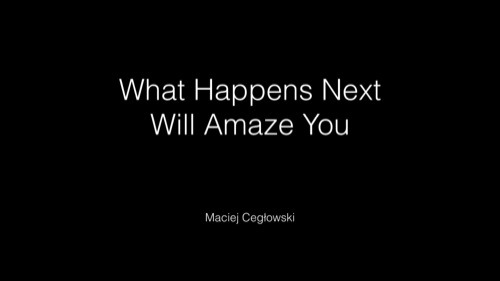What Happens Next Will Amaze You

Maciej Cegłowski - What Happens Next Will Amaze You
Another great presentation by Maciej Cegłowski. This one is interesting because he has six concrete legal proposals for the internet:
- Right To Download
- Right To Delete
- Limits on Behavioral Data Collection
- Right to Go Offline
- Ban on Third-Party Advertising
- Privacy Promises
I think these ideas are great, and politicians should start trying to implement them in law.
(A seventh proposal that is only needed in the US is that sales tax law should be uniform for stores online, since they no longer need the weird, special tax break due to unenforceable collection rules that they have for some reason.)
Also worth thing about is his section on the importance of not giving up hope:
It’s easy to get really depressed at all this. It’s important that we not let ourselves lose heart.
If you’re over a certain age, you’ll remember what it was like when every place in the world was full of cigarette smoke. Airplanes, cafes, trains, private offices, bars, even your doctor’s waiting room—it all smelled like an ashtray. Today we live in a world where you can go for weeks without smelling a cigarette if you don’t care to.
The people in 1973 were no more happy to live in that smoky world than we would be, but changing it seemed unachievable. Big Tobacco was a seemingly invincible opponent. Getting the right to breathe clean air back required a combination of social pressure, legal action, activism, regulation, and patience.
It took a long time to establish that environmental smoke exposure was harmful, and even longer to translate this into law and policy. We had to believe in our capacity to make these changes happen for a long time before we could enjoy the results.
I use this analogy because the harmful aspects of surveillance have a long gestation period, just like the harmful effects of smoking, and reformers face the same kind of well-funded resistance. That doesn’t mean we can’t win. But it does mean we have to fight.
Pessimism is a kind of a luxury enjoyed by those who know that they won’t be hurt as deeply by the entrenchment of the unacceptable status quo. Let’s not give up on the internet yet.
Source: idlewords.com